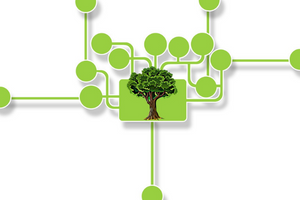The Terra Carta Seal is awarded to industry-leading organisations that embed sustainability at the core of their transition roadmap to going net zero by 2050 or earlier.
SAP has been an exemplar of championing technology innovation while integrating sustainability across its business initiatives, within and outside the organisation. The software enterprise giant has introduced several industry-specific solutions– such as SAP S/4HANA for Waste and Recycling, SAP Intelligent Returns Management, and SAP Integrated Business Planning for Supply Chain– to partners and customers to drive sustainability at scale and support a circular economy.
Terra Carta Seal for SAP’s Sustainability Work
SAP’s sustainability initiatives within the organisation and the SAP ecosystem have been recognised by Terra Carta, a charter that provides the foundation of a recovery plan to 2030 embedding Nature, People, and Planet at the core of value creation. Terra Carta was launched at the One Planet Summit in France on 11th January 2021 and is part of HRH The Prince of Wales’ Sustainable Market Initiatives, a network of CEOs around the world with a shared commitment to achieving a sustainable future.
In appreciation of the company’s Terra Carta recognition, Christian Klein, CEO and member of the Executive Board of SAP SE, said:
“At SAP, we focus on driving sustainability into all areas of the business to help lead the transition to a sustainable future, and we want to lead by example. We accelerated our pledge to become carbon neutral and we’re now set to achieve that by 2023, two years earlier than originally planned. We’re proud of the sustainability work we’ve done with our own company. That said, we know the biggest impact we can have is by helping other companies operate their businesses more sustainably.”
44 organisations, including SAP, received the inaugural 2021 Terra Carta Seal for their exemplary transition business plans to becoming net zero on or before 2050. Since its launch, the initiative has gained over 400 named supporters worldwide.
Klein stressed that collaboration and technology innovation can accelerate and scale up the efforts in building a regenerative economy. He added:
“While we are proud of SAP’s 50-year history, we believe that for all of us, the next 50 years will be the most important in human history. We have to collectively come together to tackle the biggest challenges of our time.”
Taking Action to Combat Climate Change
Given that SAP has been helping organisations manage their green, top, and bottom lines to become intelligent, sustainable enterprises, the software giant has also pledged to embed sustainability in its strategy, vision, and operations. Following its raised commitment in 2019 of 1.5° C science-based emissions reduction targets aligned with a net-zero future, SAP pledged to be carbon-neutral by 2023 including all direct, indirect, and selected categories of value chain carbon emissions.
Last week, SAP announced that it is doubling down its sustainability efforts by transitioning its 27,000 vehicle fleet to electric cars by 2030. This massive corporate strategy brings SAP closer to its climate ambitions and reflects the company’s strong commitment to making sustainability front and center of the organisation’s business operations.
Luka Mucic, SAP CFO, member of the Executive Board and Board sponsor for SAP´s sustainability efforts, stated that SAP acknowledges climate change as one of the pressing global challenges and that the tech company intends to contribute to solving it.
“Our car fleet is an important factor here. We also want to help our customers to achieve their climate goals. That is why we are consistently expanding our portfolio of sustainability solutions.”
Moreover, as an active participant in the United Nations (UN) 2021 climate change conference COP26 meeting, SAP CEO Christian Klein has earlier highlighted that the German company’s solutions support the ambitious sustainability goals of businesses and governments around the world. He said:
“Supported by our technology, organisations can go beyond “just” controlling their productivity and operating results to making climate protection measurable, diversity and inclusion visible, and ethical responsibility transparent. In this way, they can promote sustainable business practices not only in their own company, but across their entire value chain —from tracking their end-to-end carbon footprint to ensuring diversity, inclusion, and the protection of human rights.”




